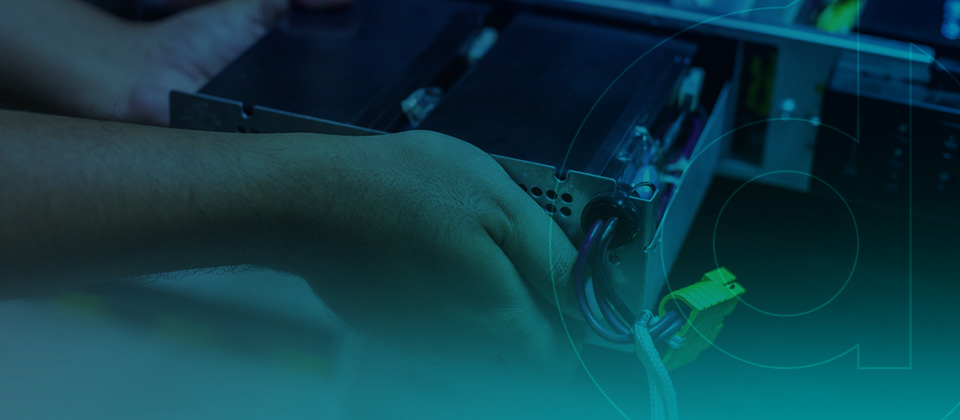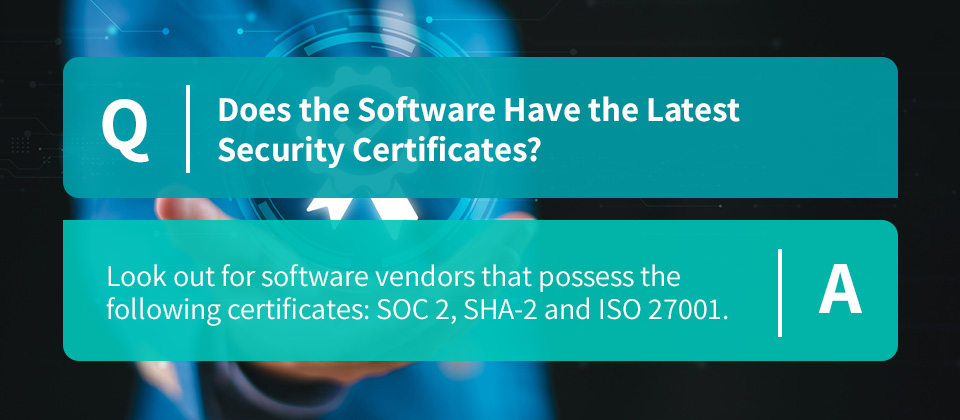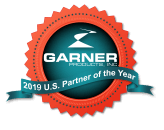
3 Essential Questions to Ask Regarding the Security of Your UPS Management Software
Unexpected shutdowns due to power outages, natural disasters and other power supply disruptions can cause major data loss — and every second spent waiting for your backup generator to kick in escalates its impact. That’s why having a functioning uninterruptible power supply (UPS) is essential in data centers of any size.
An advanced UPS management software solution enables remote monitoring of your data center’s UPS performance and health. Monitoring your power levels helps minimize your risk of overconsuming energy, which can protect your equipment from surges and sags. Keeping your UPS system secure is critical for minimizing the risk of both physical and cyber threats to your data center.
Why Is UPS Management Software Important for Data Centers?
Whether it’s a third-party cloud provider or a private on-premise data center, UPS management software is essential for any deployment handling mission-critical data. Some of the biggest benefits of adopting cloud-based UPS management software include:
- Optimized maintenance: A UPS management solution enables you to monitor your UPS condition in real-time from anywhere, at any time, so you’ll know exactly when to perform maintenance tasks. Plus, a UPS management solution will notify you when the device’s battery is beginning to run low so you can minimize waste and maximize battery life.
- Reduced electricity bills: Remote monitoring capabilities enable you to ensure your systems are using the correct amount of power, which can help you reduce excess electricity consumption and minimize energy costs.
- Power management: The ability to monitor your power levels at any given time makes it possible to eliminate electrical issues that can freeze up critical network servers and connections.
- Secured mission-critical operations: Checking UPS battery levels and performing maintenance as needed are essential steps for keeping your UPS in good condition. So when the power goes out, you can count on your UPS to keep your mission-critical operations running.
How to Tell Whether Your UPS Management Software Is Resilient
Regardless of the specific UPS software vendor you choose, it’s essential to ensure their product complies with key cybersecurity standards and regulations. Choosing a compliant solution is important for risk management. Ask the following questions to determine whether your software is sufficiently protected against potential threats:
1. Who Developed Your UPS Management Software?
Getting to know your software developer and vendor is just as important as comparing the differences between solutions.
Each company follows specific policies and procedures when developing and distributing its products, so make sure the vendor you choose meets your organization’s unique needs.
Make sure your software vendor:
- Has a strong reputation for developing high-quality products.
- Clearly communicates with you about their policies, products and services.
- Has experience in data centers and related settings.
- Clearly states their security policies on their website or advertising.
- Offers solutions with the capacity to scale as your business grows.
2. Does the Software Have the Latest Security Certificates?

Although many software security standards are encouraged rather than required, look out for software vendors that possess the following certificates:
- SOC 2: System Organizational Control (SOC) 2 is a set of security requirements for any company using cloud-based tools to handle customer data.
- SHA-2: The Secure Hash Algorithm 2 (SHA-2) is a U.S. National Security Agency (NSA) standard that uses cryptographic hash functions to verify data integrity.
- ISO 27001: The International Organization for Standardization (ISO) standard 27001:2022 certifies that the company has a system for risk management related to the security of the data it owns and handles.
It’s also vital to make sure these certifications are up to date, as requirements change frequently. Learn more about DataSpan’s awards and certifications here.
3. What Communications Protocols Does the Software Support?
What rules does the software solution adhere to when exchanging data between connected devices? Understanding which communications protocols your software supports is vital for minimizing your overall cyber risk.
Some examples include:
- SNMPv3: The Simple Network Management Protocol version 3 (SNMPv3) protects your network against external cyber threats by authenticating users and encrypting data in transit.
- TCP: Transmission control protocol (TCP) breaks down messages into a set of data packets and reassembles them when they reach their destination. This protocol minimizes the risk of hackers intercepting data while in transit by reducing the amount of data they can hack, which prevents them from gaining full access.
- UDP: User datagram protocol (UDP) reduces latency and loss tolerance when connecting different applications, which enables safer communications between systems.
These and many other network communications protocols protect your data and your overall system from external threats like hackers and bots.
In the context of a UPS management solution, these protocols reduce the risk of losing access to a power supply in an emergency by cutting off unauthorized access to your data.
Choose DataSpan to Keep Your UPS Management Software Secure
If you’re looking to invest in a UPS management solution and know you’ll need some extra assistance to keep up with it, DataSpan is here to help. Our vendor-agnostic approach means you can choose any supported solution you believe is in your organization’s best interest — we’ll help you manage it.
We handle the repetitive tasks of managing and maintaining your UPS management software so you and your employees can focus on core work. We also offer professional services such as consulting, troubleshooting and ongoing support so you can maximize your investment.
Contact your local DataSpan representative today to discuss how our data center security and maintenance services can accommodate your requirements.

About the Author: Alex von Hassler’s long term focus is the continued testing, learning, and deployment of modern IT solutions. During his years as a DataSpan team member, his responsibilities grew from managing Salesforce CRM to improving system security, creating marketing initiatives, as well as providing continued support to the highly motivated and experienced team in an ever-changing industry. As DataSpan evolves to provide the best-fitting IT solutions to its customers, Alex von Hassler continues to hone his skills in the world of web-based ERP systems, security, and best customer engagement practices. Empowering such a dynamic team with the right tools provides him with enormous gratification.








